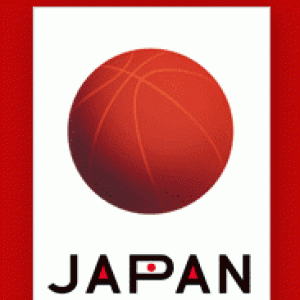By Piti Hurtado
Of all the countries with strong economy in the world Japan is the worst if we talk about development systems in basketball young categories. They have very good facilities, have means to be able to make to evolve their young athletes, they have discipline personality as nation but they do not have the right organization. A big problem is that the japanese man average has short size and not strong enough but in spite of it, the biggest problem is they don’t have well organized clubs with good structures.
The Minibasket competition, so popular in Europe, is almost non-existent, there are no basketball schools. The whole team sport or at least 95% is done during the primary and secondary school. That implies it a lack of specific coaches for basketball and great capture for baseball and soccer (curiously, being a sport with European origin, soccer development works in clubs and the federation allows competitions and teams out of the school circuit).
It’s a bit sad because the capacity of work of players is very good, but their method is old, there is no a coaches school strong enough, it doesn’t work the qualification coaches level and ends up being a reflex of what is the society in general. The base of the population is very ethical, civic, responsible and hard-working (in this way the players are) but the hierarchies are resistant to change than in other countries. Few Institutes and Universities that are specialized in basketball and win championships, are the first ones that don’t want to open the competitions to clubs championships. There is an American system for everything, but without the network existing in USA. The professional clubs don’t have young teams (just a few ones have a school focused on the social thing or the image) and it’s not a draft or distribution of talents either. The best players always go to the big companies teams (Toshiba, Toyota, Aisin, Hitachi or Mitsubishi). They start the professional circuit being 22-23 years old and they are led to the best teams, therefore they can’t play minutes of game, up to 25-26 years. To this age they are considered still young...
For the almost total absence of unemployment in the country and the social stratum of a very powerful middle class, almost all the Japanese do the university journey complete because assures them a work for all their life. Then, even the players who might belong to a professional team before time, at the age of 19-20, prefer ending in their university degree. The competition and coaches clearly have room for improvement.
On the other hand, those who minimally appear, since it has been Yuta Tabuse’s case, Watanabe or now Hachimura, since only they have eyes to end his training in USA. For them Division I is the panacea and certainly, the NBA. But the reality is by mentality and physical development they would be better completed in European programs. Allmost all basketball foreigners coaches in Japan, in the last 40 years, have been North American and for them to be opened for the European basket or to the basket FIBA it is a hanging subject.
In my opinion for their values, they must improve technically and tactically very much in game knowledge, passing and defensive knowledge. For their educational system, it’s though for them everything with several ways in the decision-making. But I think that the European system would be very beneficial because they have few excellent attitude qualities and strong collective thinking.
Piti Hurtado has been head coach in Japan (2013-2015) in Levanga Hokkaido Sapporo (NBL) team.
Skype: piti.hurtado
www.pitihurtado.com
Photo by: FIBA


